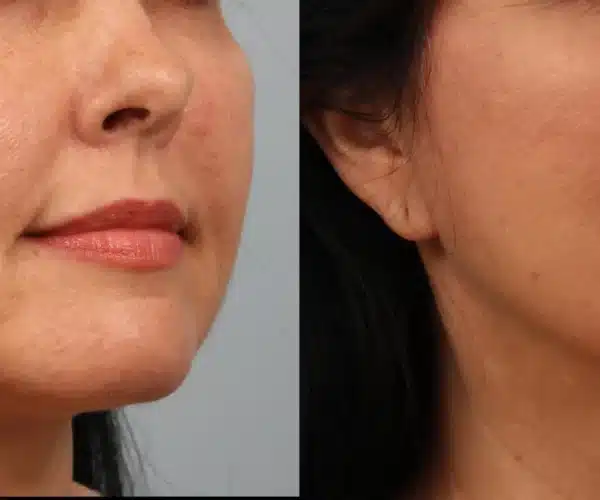Weight Loss Surgery Guide 2025: Things Must to Know Before Making a Life-Changing Decision

Millions of people worldwide are turning to weight loss surgery as a long-term solution for obesity and related health problems. Whether you’re considering it for health, confidence, or quality of life, understanding your options can lead to a safe and transformative journey.
Understanding weight loss surgery and How It Works
Weight loss surgery modifies your digestive system to aid in weight loss by either limiting your food intake or altering how your body absorbs nutrients. It’s an effective solution for individuals dealing with severe obesity, especially when diet and exercise have not been successful.
The procedure either reduces the size of your stomach or reroutes your digestive system. This leads to significant weight loss by curbing your appetite and limiting calorie absorption.
Candidates are typically individuals with a BMI over 40 or over 35 with related health issues like diabetes. Criteria may differ depending on the country or clinic.
Both men and women benefit from weight loss surgery, but the approach can differ. Men often target abdominal fat, while women tend to focus on hormonal weight gain and metabolism. Additionally, recovery and results may vary slightly between genders.
Different Types of weight loss surgery Explained
Each method of weight loss surgery offers unique benefits depending on your goals and health history. Understanding the options helps you choose the safest and most effective procedure for long-term success.
-
Gastric sleeve: Removes 80% of the stomach. Most common and offers fast results.
-
Gastric bypass: Reroutes your intestines. Reduces hunger hormones and calories absorbed.
-
Gastric banding: A band is placed around the top of the stomach to limit intake.
-
Duodenal switch: A complex surgery offering the highest weight loss results.
-
Endoscopic procedures: Non-surgical options for those who don’t qualify for full surgery.
Choosing the right method depends on your weight, medical conditions, and desired lifestyle. Clinics like Magical Clinic offer consultations to help you find your best fit.
Gastric bypass and duodenal switch are often cited as the most effective weight loss surgery, especially for long-term metabolic improvement. However, the gastric sleeve remains the most popular globally for its simplicity and great results.
The least dangerous weight loss surgery is generally the gastric sleeve or banding, due to fewer complications and shorter recovery. Still, it’s important to match safety with desired weight loss results.
How Safe is weight loss surgery?
Safety is one of the most common concerns with weight loss surgery, especially for first-time patients. Thankfully, procedures today are safer than ever with proper screening, experienced surgeons, and advanced facilities.
-
Mortality rate is under 0.1% when performed by qualified professionals
-
Common risks include infections, bleeding, or nutritional deficiencies
-
Success rates increase with proper post-surgery lifestyle changes
-
Minimally invasive techniques like laparoscopy reduce downtime
-
Long-term benefits include reduced diabetes, cholesterol, and blood pressure
Discussing your medical history and goals with weight loss surgeons is the best way to understand your personal risk level. Now let’s explore how to choose the right surgeon for your journey.
The Role of weight loss surgeons and How to Choose One
The success of your weight loss surgery greatly depends on the skill and experience of the surgeon. With so many choices available, knowing what to look for is key.
-
Board certification in bariatric or metabolic surgery
-
Proven track record with high patient satisfaction and success stories
-
Facility accreditation showing hygiene and safety compliance
-
Willingness to explain risks and expectations clearly and openly
-
Accessible aftercare with follow-ups and dietitian support
Top-tier weight loss surgeons are not just technically skilled—they offer emotional support, guidance, and full-spectrum care.
Financing and the cost of weight loss surgery
For many, affordability is the biggest barrier to weight loss surgery. However, with options like bariatric surgery financing, patients can spread out costs and avoid delays.
-
Medical loans from specialty lenders that cover surgery, hospital, and travel
-
Payment plans offered directly by clinics such as Magical Clinic
-
Insurance coverage in some cases, especially if surgery is medically necessary
-
Personal loans or savings for self-funded patients
-
Crowdfunding or employer wellness programs, which are becoming more common
If you’re worried about the cost of plastic surgery after massive weight loss (like skin tightening), some clinics bundle it into a single treatment plan. Let’s now discuss how medical tourism can further reduce costs.
Planning a Trip for weight loss surgery
Traveling abroad for weight loss surgery can save you up to 70%, especially in countries like Turkey. But planning is crucial to ensure a smooth, stress-free experience.
-
Choose an accredited clinic that provides all-inclusive packages
-
Book flights and accommodation early, ideally through your clinic’s package
-
Bring medical records and test results, especially bloodwork or imaging
-
Plan for 10–14 days of stay, depending on recovery
-
Check visa requirements and COVID protocols
-
Consider bringing a companion, especially for the first few days post-op
A trusted provider like Magical Clinic arranges airport transfers, hotel stays, translations, and post-op support—all in one package.
Magical Clinic: The Premier Destination for weight loss surgery
Located in Istanbul, Magical Clinic is one of the most sought-after centers for weight loss surgery. It combines modern facilities, internationally trained weight loss surgeons, and unbeatable pricing. Patients receive personalized care plans, pre-surgery consultations, nutrition guidance, and 24/7 medical support. All procedures are performed using advanced laparoscopic methods, ensuring minimal scarring and faster recovery. What truly sets Magical Clinic apart is its all-inclusive package: surgery, accommodation, transportation, and aftercare—without hidden costs. If you’re considering surgery abroad, Magical Clinic is the smart, safe, and affordable choice.
Hidden Costs That Can Affect Total weight loss surgery Expenses
When patients plan for weight loss surgery, they often focus solely on the base surgical fee. However, several additional costs can significantly increase your total investment if you’re not fully informed from the start. Here are hidden costs to consider when calculating your budget:
-
Pre-surgery diagnostics, such as blood work, chest X-rays, or endoscopy, which may not be included in the advertised package
-
Hotel upgrades or extended stays if your recovery takes longer than planned
-
Special dietary supplements for post-op nutrition, which are often essential for the first few months
-
Compression garments, which may be required after procedures like gastric bypass or following cost of plastic surgery for loose skin removal
-
Unplanned follow-up visits or consultations, especially if complications arise
-
Travel insurance that covers medical travel, in case of unexpected delays or emergencies
-
Support garments or medications for skin elasticity and pain management
Being aware of these items helps you build a realistic financial plan and avoid stress during recovery. Clinics like Magical Clinic stand out for their transparent, all-inclusive pricing models that eliminate most of these hidden surprises upfront.
How to Prepare Mentally and Physically for weight loss surgery
Undergoing weight loss surgery isn’t just about the operation—it’s about preparing your body and mindset for a new lifestyle. A strong foundation before surgery often leads to smoother recovery and better long-term results. Here’s how to prepare for the big change ahead:
-
Start a high-protein, low-sugar diet at least two weeks before surgery, as advised by your doctor
-
Stay active to strengthen your cardiovascular system and increase post-surgery mobility
-
Quit smoking, as nicotine slows healing and increases the risk of complications
-
Limit alcohol and caffeine, which can irritate your stomach lining and cause dehydration
-
Attend pre-surgical consultations with your nutritionist and surgeon to set realistic goals
-
Practice portion control and mindful eating so that post-surgery eating habits don’t feel like a shock
-
Work with a therapist if needed, to mentally prepare for body changes and lifestyle shifts
Getting your body and mind ready not only improves your surgical outcome but also sets the tone for lifelong success with your weight loss surgery journey.
Combining Procedures to Maximize Results from weight loss surgery
Some patients benefit from combining weight loss surgery with follow-up treatments like skin tightening or contouring. This approach is cost-effective and results in a more complete physical transformation. Here’s why combining procedures may be the right choice:
-
One anesthesia session lowers the overall risk and shortens total recovery time
-
Lower total costs, especially when bundled into one medical travel package abroad
-
Fewer days off work, which helps those with limited time for multiple trips
-
Better body proportion outcomes, since surgeons can shape multiple areas simultaneously
-
Boosted confidence, when excess skin removal follows rapid weight loss
-
Post-weight loss contouring enhances long-term satisfaction and prevents mobility issues
-
Some clinics, like Magical Clinic, offer discounted combo procedures in their all-inclusive packages
Combining procedures should always be discussed with your surgeon to ensure safety and timing, but when done properly, it can enhance both your health and aesthetic goals after weight loss surgery.
Lifestyle Changes to Commit to After weight loss surgery
weight loss surgery is only the beginning. To maintain your results and improve your overall health, long-term lifestyle changes are crucial and must be adopted gradually and consistently.
Here are essential habits to implement after surgery:
-
Eat smaller meals throughout the day and chew thoroughly to prevent digestive issues
-
Avoid sugary drinks and high-fat foods, which can cause dumping syndrome or slow down weight loss
-
Prioritize lean protein intake, which supports healing and preserves muscle mass
-
Drink at least 1.5 to 2 liters of water daily, but avoid fluids during meals to prevent stomach overload
-
Take vitamin and mineral supplements, especially B12, iron, and calcium, to avoid deficiencies common after bariatric procedures
-
Track your meals using a food journal or app to remain accountable and adjust when needed
-
Engage in regular physical activity, like walking or swimming, starting as early as your doctor allows
These habits not only support your weight loss but also reduce the likelihood of complications and weight regain. Committing to these changes makes weight loss surgery a lasting solution instead of a temporary fix.
How Men and Women Experience weight loss surgery Differently
Although the procedure may be the same, weight loss surgery for men and women can result in different outcomes. Biological, hormonal, and behavioral factors influence everything from fat distribution to muscle retention.
Key gender-based differences include:
-
Men often lose weight faster initially, especially from the abdomen due to visceral fat reduction
-
Women may face more hormonal fluctuations, which can affect hunger, metabolism, and recovery
-
Muscle retention is generally higher in men, helping them burn calories more efficiently post-surgery
-
Women may see more changes in body shape, particularly around the hips, thighs, and breasts
-
Emotional support needs differ, as women are more likely to seek group support, while men may need individualized guidance
-
Plastic surgery needs vary, with men focusing on chest and abdomen while women may want full-body contouring
-
Long-term weight maintenance strategies may differ due to lifestyle patterns and support systems
Understanding these differences helps customize your recovery plan and manage expectations more effectively. At Magical Clinic, both men and women receive tailored care to ensure the best possible outcomes from their weight loss surgery.
Questions to Ask During Your weight loss surgery Consultation
Choosing to have weight loss surgery is a major decision, and your consultation is your chance to gather all the information you need. Asking the right questions ensures you’re informed, comfortable, and fully prepared for your journey. Be sure to cover these key areas during your appointment:
-
What procedure do you recommend for my health profile and goals?
-
What are the risks, complications, and success rates of this surgery?
-
How experienced are your weight loss surgeons, and can I view testimonials or before/after photos?
-
What’s included in the total cost, and are there any hidden fees?
-
Do you offer bariatric surgery financing or payment plans?
-
What is the recovery timeline and when can I return to normal activity?
-
How will post-op care and follow-up be handled—especially if I’m coming from abroad?
Having clear answers to these questions will give you confidence in your surgeon and the clinic. Magical Clinic encourages patients to ask everything upfront and is known for its transparency and supportive approach to weight loss surgery care.
How to Maintain Long-Term Results After weight loss surgery
Many patients mistakenly think that once the surgery is over, the hard part is done. In reality, weight loss surgery is a lifelong commitment that requires discipline, structure, and smart habits to maintain your transformation. To stay on track after surgery, follow these key strategies:
-
Follow your nutritionist’s advice and stick to protein-first, low-carb meals
-
Avoid emotional eating triggers by practicing stress-relief techniques like journaling, yoga, or therapy
-
Track your weight weekly, not daily, to stay aware without obsessing over small fluctuations
-
Attend follow-up appointments with your surgeon and support team to monitor progress and prevent complications
-
Create a workout routine you enjoy—walking, swimming, dancing, or strength training—to stay active
-
Join a support group, either locally or online, to connect with others on the same journey
-
Review your goals regularly, and adjust your lifestyle based on your evolving needs and challenges
Consistency is more important than perfection—your habits will determine whether your weight loss surgery results last or fade. Clinics like Magical Clinic offer long-term support programs to help patients stay motivated for years after their surgery.
Why weight loss surgery Abroad Can Be a Smart Choice
Many people are now choosing to travel internationally for weight loss surgery, especially to countries like Turkey, where quality care is available at a more affordable price. But to make the most of your experience, you must understand the benefits and know how to plan. Here’s why medical travel for surgery is becoming more popular:
-
Lower overall costs, often 50–70% less than in the US or UK, without compromising on quality
-
Highly trained weight loss surgeons in accredited hospitals using modern techniques
-
All-inclusive packages, including accommodation, transfers, and translator services
-
Shorter wait times, allowing you to schedule your surgery sooner and begin your transformation faster
-
Access to destinations like Magical Clinic, which specialize in treating international patients
-
Opportunity to recover in a peaceful, relaxing environment, away from work and home stress
-
Post-op support plans, including virtual follow-ups once you return home
For those seeking affordability, comfort, and expertise, having weight loss surgery abroad—especially in Turkey—can be the ideal path to life-changing results.
FAQs: weight loss surgery
What is the best surgery to lose weight?
The most effective weight loss surgery is generally gastric bypass or duodenal switch, depending on individual health goals and BMI.
How safe is weight loss surgery?
Modern weight loss surgery is extremely safe when performed by certified professionals, with complication rates similar to other routine surgeries.
What is the weight requirement for weight loss surgery?
Most clinics require a BMI over 40, or over 35 with obesity-related health conditions like diabetes or sleep apnea.
What does weight loss surgery do?
It physically alters your stomach or digestive system to limit food intake and absorption, helping you lose significant weight over time.
Conclusion: Is weight loss surgery right for you?
If you’ve struggled with obesity and want a long-term solution, weight loss surgery could be your path to a healthier life. It’s safe, effective, and more accessible than ever—especially with trusted providers like Magical Clinic. Whether you’re local or planning a medical trip, now is the time to explore your options and take control of your health.
Related Blogs

- April 26, 2025
Buccal Fat Removal Regret: Causes, Solutions,.
Buccal fat removal has risen to fame as a popular way to achieve a sculpted face. However, stories of buccal.
Read More
- April 5, 2025
Nose Reshaping Cost: What to Expect.
If you’re thinking about reshaping your nose, you’re probably wondering what it’s going to cost—and what exactly you’re paying for..
Read More